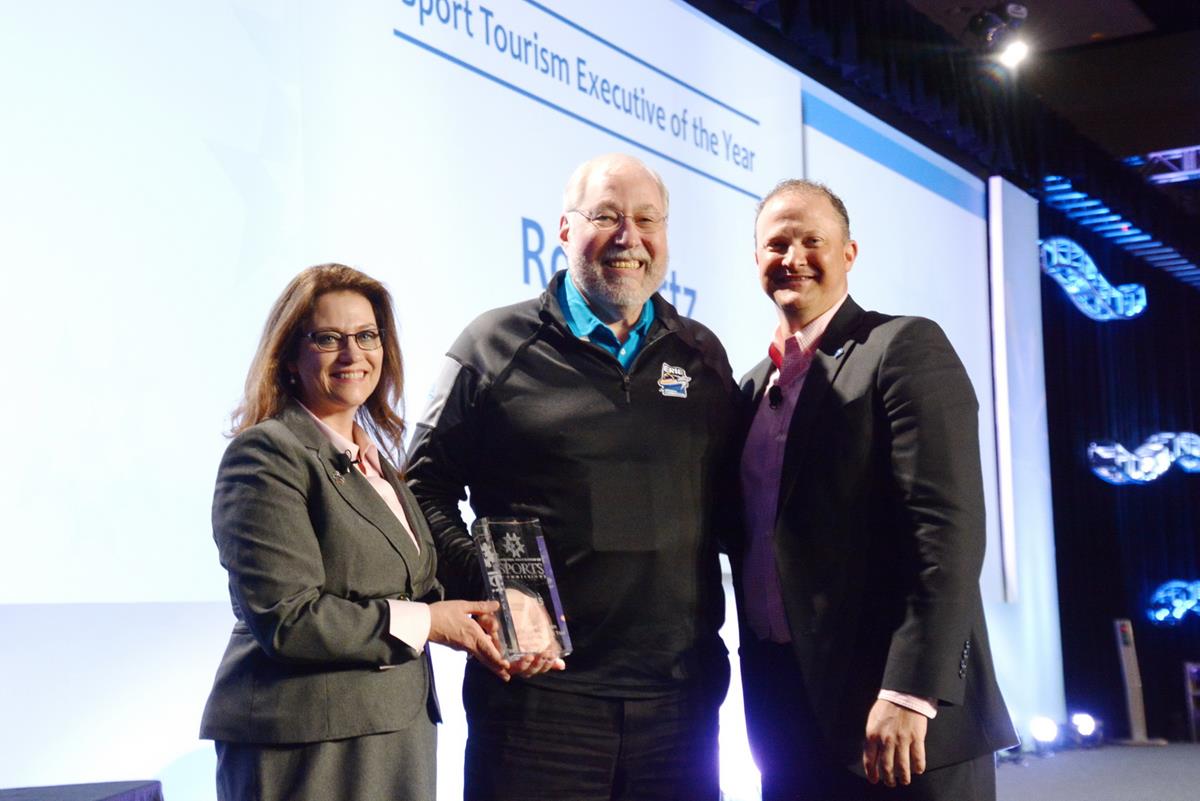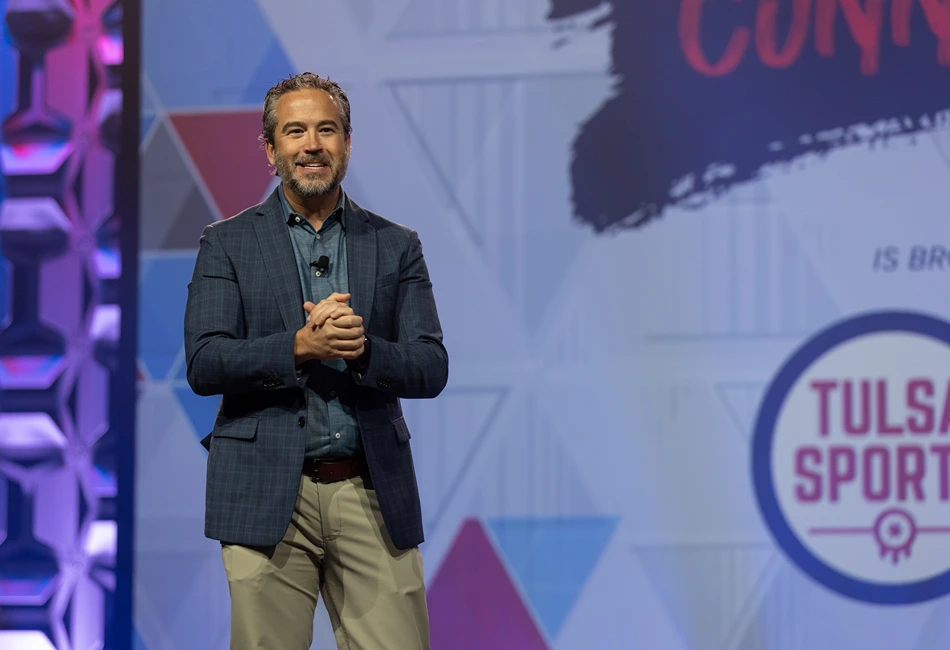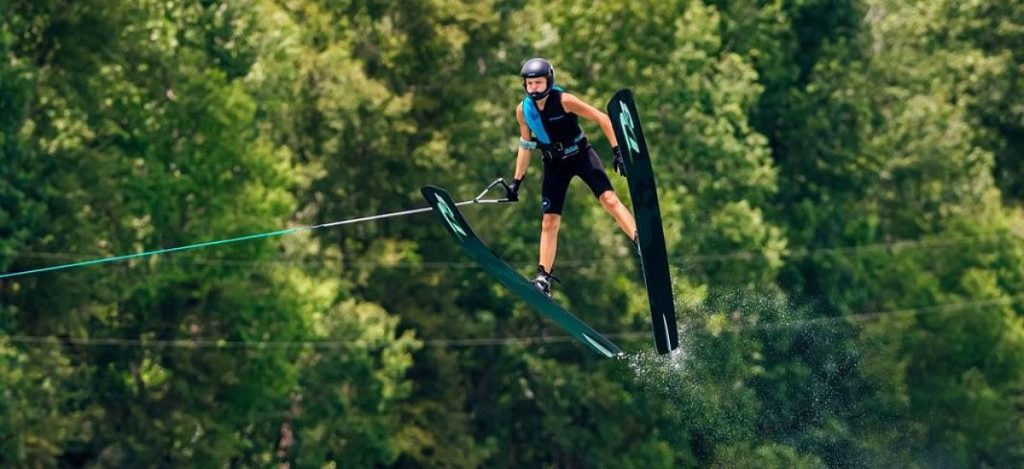According to lore, ancient Greek king Alexander the Great wept upon realizing he had become the planet’s dominant force and had no more worlds to conquer.
While most modern luminaries reach the peaks of their fields using considerably less force than Alexander did, many face a similar crisis when they recognize there is nowhere to go but down.
Which begs the question, what does a legend do when he’s reached the pinnacle of his profession?
In the case of Erie Sports Commission Executive Director R. Ron Sertz, the answer was simple: Become renowned in a second line of work. And a third. And a fourth.
“My career is probably best summed up with a slogan I created a long time ago: win every day,” Sertz said. “Try to be as good as you can every day with the big things and the little things. I think you have to have some kind of vision of where you’re going, but it’s all about the work that makes the vision happen.”
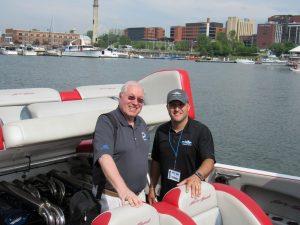 Sertz’s first career act, from 1971-1987, came as a fabled athletic director, cross-country, track and basketball coach for Cathedral Preparatory School in Erie, Pennsylvania. In his first coaching stint at Sacred Heart School, he captured a 1971 Pennsylvania State Basketball Championship, followed by his teams at Prep recording an 88-5 record between 1971-77. Not to be outdone, his cross-country teams managed an incredible record of 111-4 in a 10-year span and captured 10 league titles. Sertz was such a prodigious leader that in 1999, the Erie Times-News newspaper selected him as one of the century’s greatest coaches.
Sertz’s first career act, from 1971-1987, came as a fabled athletic director, cross-country, track and basketball coach for Cathedral Preparatory School in Erie, Pennsylvania. In his first coaching stint at Sacred Heart School, he captured a 1971 Pennsylvania State Basketball Championship, followed by his teams at Prep recording an 88-5 record between 1971-77. Not to be outdone, his cross-country teams managed an incredible record of 111-4 in a 10-year span and captured 10 league titles. Sertz was such a prodigious leader that in 1999, the Erie Times-News newspaper selected him as one of the century’s greatest coaches.
Sertz complemented his coaching and AD duties in 1983, by becoming the founder and director of the McDonald’s Classic, a basketball tourney that was called “the best four-team tournament in the country” by Hoops USA. For 25 years, Sertz maintained that post, helping grow the tournament and bringing considerable tourism dollars to his hometown of Erie.
In 1996, Sertz moved on to the next phase of his life, becoming president of EHC Ltd., the ownership group of the fledgling Erie Otters hockey team of the Ontario Hockey League. From 1996 until 2008, Sertz presided over the club as an owner and director of operations, and was instrumental in transforming the Otters into one of the OHL’s top franchises, as the team won three division titles and the OHL league championship.
Not content with what was already a laundry list of accomplishments, Sertz turned his attention to the NBA Developmental League in 2008, where he became the founding president of the Erie BayHawks, giving Erie another team to cheer for.
In 2010, Sertz decided to try his hand in a new field and in November of that year, he was named the first executive director of the Erie Sports Commission. Within a few years, the commission, incredibly, transformed from a concept into the 2014 and 2016 National Sports Commission of the Year.
“It started with doing a lot of homework,” Sertz said. “I spent probably close to two years researching the sports commission concept and visiting sports commissions and analyzing what they had to say. I tried to avoid the mistakes they made, took all that information and created what I refer to as a right-sized vision of what we can be in Erie.
“(Erie isn’t) going to host the Olympics any time soon, but we have a great arena, a great convention center, four colleges in the area that have good facilities,” Sertz said. “We have sort of a small-town feel but attract from big metropolitan areas as well. (Tournament hosts and visitors) know they’re going to get support from a nationally recognized sports commission that has pride sticking with events from start to finish.”
This is an impressive accomplishment, given the obstacles Sertz encountered in building the commission from the ground up.
“Probably the biggest challenges we faced, one is education. Getting people to know who we were and what we were trying to do, both locally and nationally,” Sertz said. “Who was the Erie Sports Commission, what was our role, what were we attempting to do, how we were going to attract tourism through sports? We had to let people know exactly who we were.
“The second thing was funding,” Sertz added. “We were very fortunate to find the right partners right away in VisitErie (Convention and Visitors Bureau). They provided the funding that we needed. That’s so important because it allows us to concentrate on our main mission, which is to attract sporting events, help make sporting events bigger and better and drive economic impact. We don’t have to worry about fundraising sponsorships. We can cut right to the chase and work every day of creating tourism through sports.”
Under his leadership, the Erie Sports Commission has grown from hosting nine sporting events in 2012 to 59 events in 2017, which accounted for more than $16 million in economic impact for the Erie region that year. Some of the bigger attractions the ESC has brought to the area include the NCAA Women’s Frozen Four, NCAA Women’s Division II Basketball Championships, and The Color Run, which brought 11,000 people to the downtown area in its first year.
“We’ve attracted a variety of things,” Sertz said. “We try to attract or create a lot of events. A lot of state championships. We’ve been successful in helping grow events. We do close to 60 events now each year.
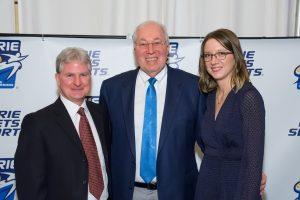 “We didn’t want to just be a sports commission, we wanted to be one of the top sports commissions,” Sertz said. “One of the key things was I had the opportunity to hire the right people who had a great work ethic. It’s all about the team, all about the people who are pulling in the right direction, working hard every day. Research and analysis in creating the vision was important, but the people are more important.”
“We didn’t want to just be a sports commission, we wanted to be one of the top sports commissions,” Sertz said. “One of the key things was I had the opportunity to hire the right people who had a great work ethic. It’s all about the team, all about the people who are pulling in the right direction, working hard every day. Research and analysis in creating the vision was important, but the people are more important.”
For his efforts, Sertz was named the 2016 National Association of Sports Commission’s National Sports Tourism Executive of the Year, an honor that sits nicely next to his numerous other accolades, including being twice selected an Erie legend by the Boys and Girls Club and being inducted into the Metropolitan Erie Chapter of the Pennsylvania Sports Hall of Fame in 2017.
“I was born and raised in Erie, my parents were born here and my brothers and sisters still all live in the community,” said Sertz, who has been married to his wife Emily for 48 years. “The older you get, the more important it becomes that you’re making some kind of impact. Starting up a hockey team, starting an NBA franchise, starting the McDonald’s Classic, I’m very proud to have played a role in getting those teams up and running. Hopefully, the sports commission will be long-lasting as well.”

